Applications
EigenBio has a broad scope of applications – from understanding immune system function and disease processes, to designing interventions and preventive care. EigenBio analysis can play a role at all stages of R&D, from early research into target identification and epitope discovery through to clinical trial design, development of companion diagnostics, and immunovigilance. Here are some of the applications:
- Biopharmaceutical Design:
| EigenBio can assess antigenicity and epitope mimics in candidate biopharmaceuticals before they enter costly development. The company has deep experience in analysis of T cell and B cell epitopes in immunoglobulins, and the natural frequency patterns of T cell exposed motifs in immunoglobulins. We can also compare epitopes in products to those in the entire human proteome. The platform can thus be applied to predict potential adverse reactions, de-risk the development of new biopharmaceuticals, and optimize clinical trial design. Further, EigenBio is valuable in discovery to identify new antibody targets. |
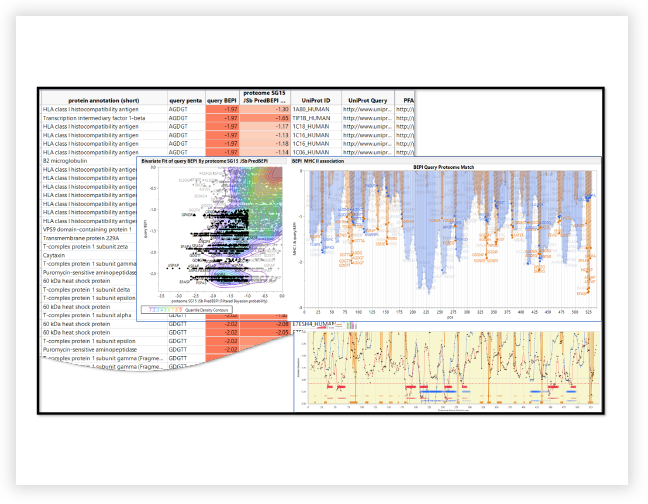 |
- Vaccine Design:
| The EigenBio platform can rapidly identify peptides and polypeptides comprising desired combinations of B and T cell epitopes for vaccines. It can also identify and avoid epitopes which may elicit suppressive Treg responses. The high throughput capability allows many microbial isolates be compared to determine the conservation of epitope patterns. EigenBio’s vaccine design capabilities are applicable to developing personalized cancer vaccines as well as antimicrobial vaccines, including rapid preparedness. |
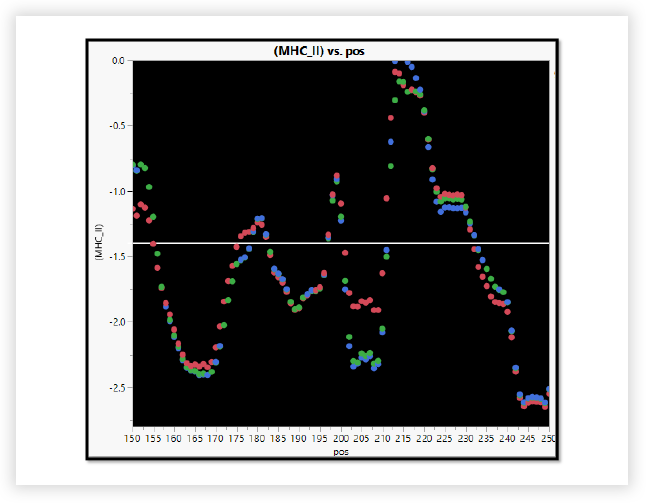 |
- Microbial Molecular Epidemiology:
| High-throughput capability enables rapid analysis of emerging pathogens and comparison to related isolates, with a view to understanding and anticipating changes in pathogenicity and vaccine coverage. |
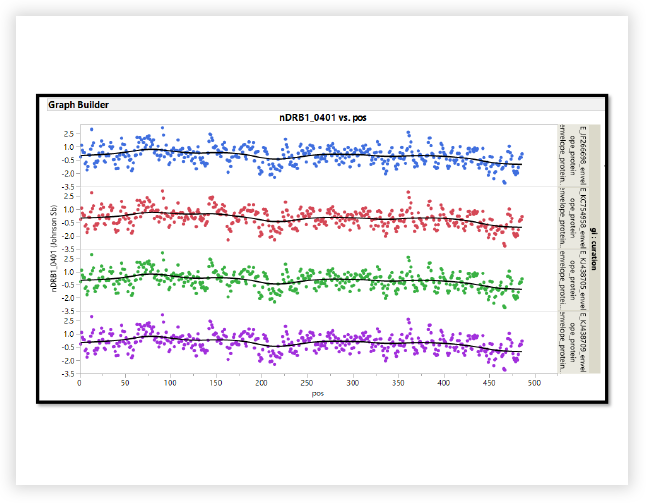 |
- Microbiome Analysis:
| Analysis of the organisms in the microbiome has demonstrated the role of the microbiome in modulating the immune response. EigenBio has identified how individual organisms may contribute to up or down-regulation of immune responses. |
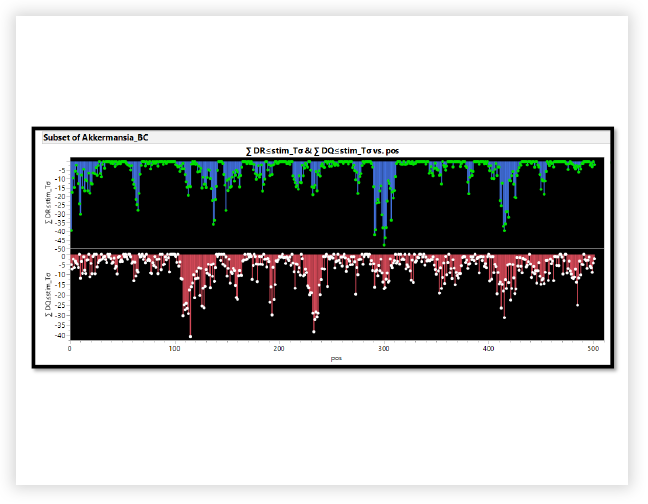 |
- Autoimmunity:
| EigenBio can characterize both B and T cell epitope mimicry of the human proteome and thus is clarifying how infectious organisms and immune disequilibrium can lead to autoimmunity. |
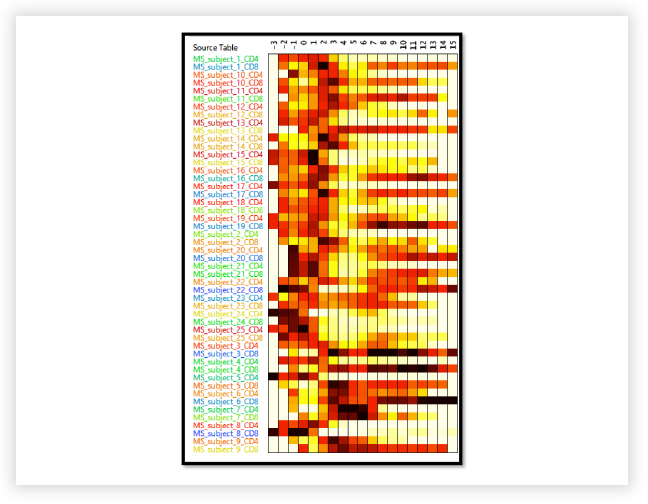 |
- Allergy:
| EigenBio has identified key “outlier” epitope patterns which are associated with allergens. |
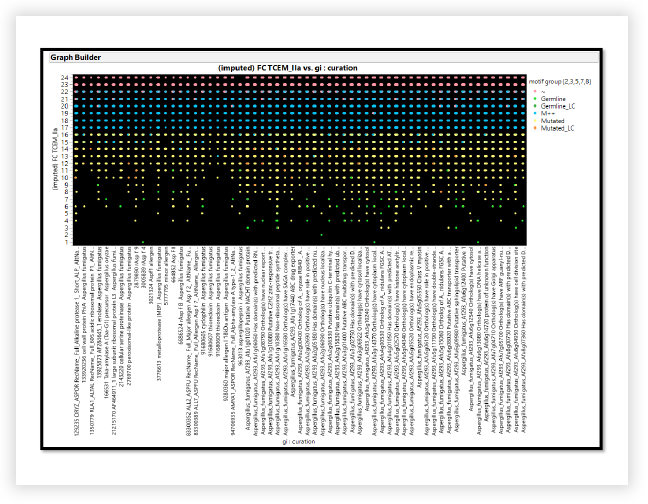 |
- Cancer Neoantigens:
| Analysis of tumor associated and neoantigens, whether the result of point mutations, fusions, or splice variants, shows how the immune response to the mutanome is altered and thus can guide design of immunotherapeutic interventions. EigenBio can rapidly compare epitopes in sequences from normal and tumor tissues, and can evaluate these compared to a large panel of analyzed tumor associated antigens. |
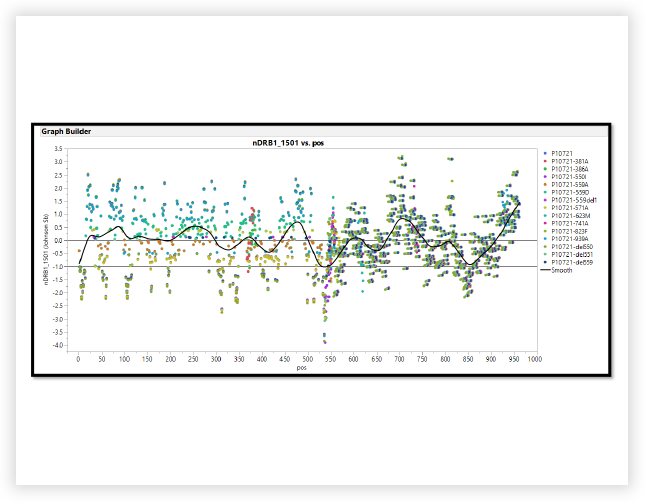 |
- Personalized Medicine:
| EigenBio incorporates a large number of human and murine MHC alleles in its analysis and can dissect how each allele affects outcome of an amino acid mutation. This enables a personal prediction of a response to a vaccine or therapeutic, or the design of a personal intervention. |
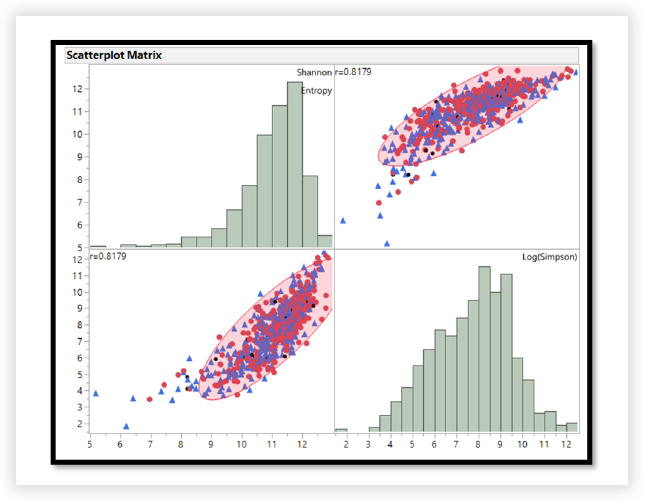 |
- Immunonutrition:
| EigenBio’s analysis of immunoglobulins and the microbiome has led to an understanding of the critical role of immunonutrition in maintaining immune balance both in everyday life and as an adjunct to immunotherapy. We are seeking partners to develop specific products in this area. |
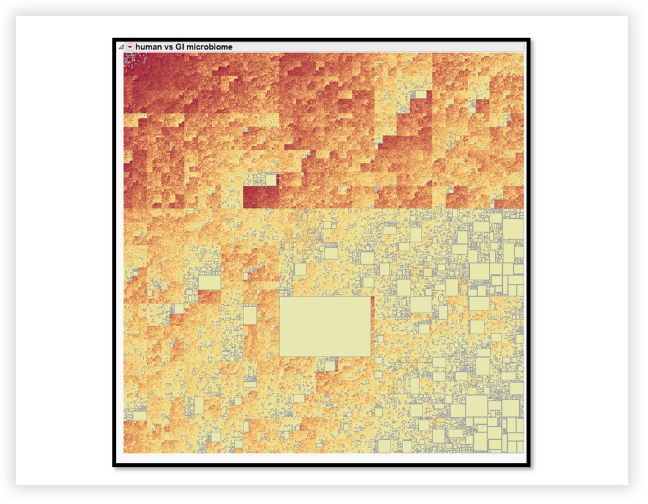 |
- B and T Cell Repertoire Analysis:
| EigenBio analysis can show how repertoires of B and T cells change over time in disease or following immunotherapy, infection, or transplant interventions. |
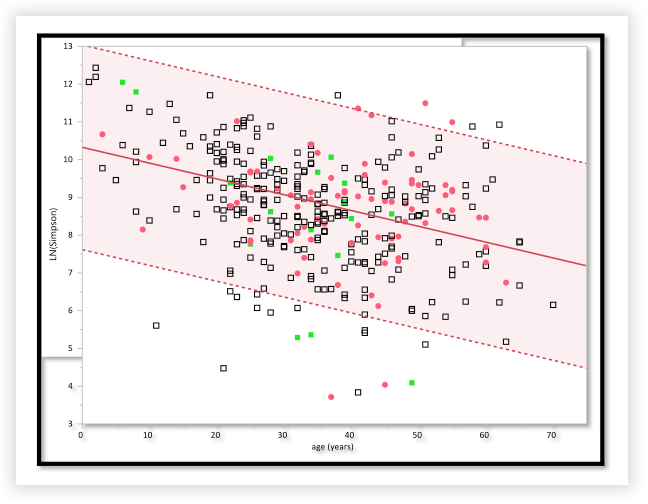 |
- Custom Analytics:
| If you don’t see your application listed, let’s talk. We love new challenges! |
 |












